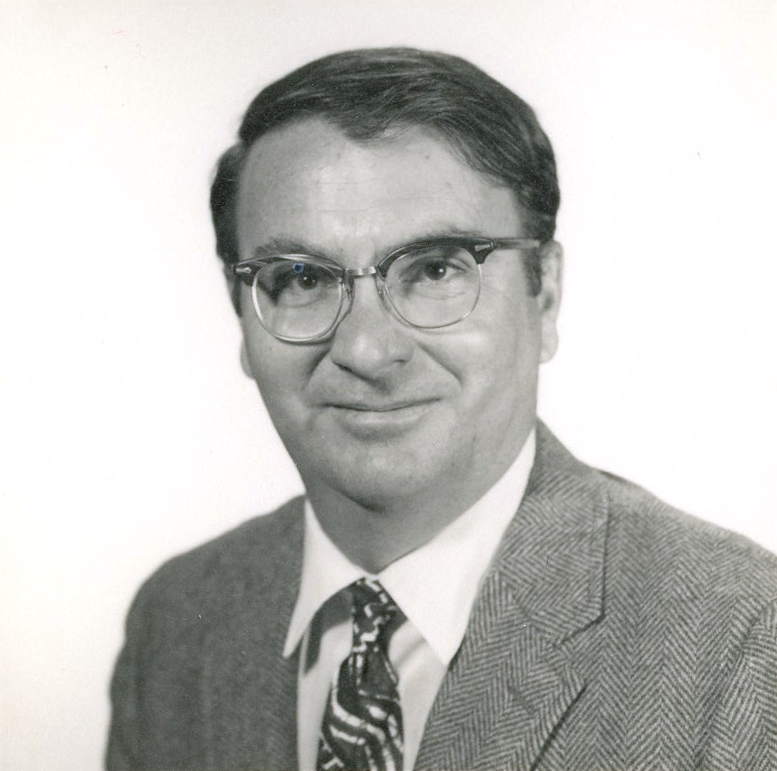
| In Appreciation Dad was a professor of biochemistry and molecular biology at the University of Southern California, where he worked for more than thirty-five years starting Sept. 1966. Although he retired in May 2001, he continued as an active emeritus professor. In the 1970s Michael focused on research and co-authored many scientific papers (+). For years his office and lab were on the third floor of the Ahmanson building, and it was interesting to visit and see all the centrifuges and other equipment. Over the years a number of graduate students went through the lab earning their PhDs. One could not just go on the Internet and look up research in the field; one read the journals that came in the mail, attended conferences, and mailed off reprint requests if something seemed relevant. (A side benefit of this was that Michael received research papers from universities around the world; he brought the envelopes home and mom would get the stamps from them). As the 1980s progressed Michael shifted more toward teaching, for example serving as director of instructional programs for the department. There were classes to prepare for, lectures to attend, students to advise, and grant proposals to work on. As an educator Michael sought to increase science literacy, for example through his work on the TroyBridge program. In 1989 he obtained a $1m grant from the Howard Hughes Medical Insitute. Funds went to "encourage and prepare high school students to enter university programs leading to medical and biological science careers" and "for development and support of outreach programs for high school science teachers." One result was USCience, a program to engage high school students and teachers. In the late 1980s he created and co-taught the AIDS course at USC and in 1991 he co-authored a book on AIDS. He also introduced a course on science in the media, and worked on a course with the business school on biotechnology. Michael was very involved in the politics of the department and served for a time as chairman as well as on the faculty senate. Over the years Pad and Mom organized quite a few dinners, barbeques and hikes with people at work. As chair his office was in the Hancock building. As an emeritus he continued at USC; for example in 2006-07 he developed a course on "Health Professions: Prospects and Preparation." His offices could get quite messy; there were piles of lecture materials, papers, catalogues and such everywhere, plus he often picked up stuff that was being discarded, such as interesting but outmoded pieces of equipment or rock specimens from the geology department. The commute was a downside of working at USC; it meant at least 35 minutes on the freeway going there in the morning and again coming back in the evening. When Mom to the position managing the chemistry stockroom at USC, Michael drove them both to and from work. In 1973-74 Michael took a sabbatical at the University of Otago in Dunedin. Here it was an easy walk to work. Not having to do a long commute can really make a difference in quality of life. In the evening we would sometimes to walk to the port and see what ships were in. Also there was no TV; instead it was the radio, where we'd catch, among other things Alistair Cooke's "Letter from America." In 1981 Michael took a sabbatical at the Australian National University in Canberra. Here again he could walk to work. Michael's father, David B. Appleman, who worked for many years as a professor of plant physiology at UCLA (+), lived close by and we went over to help with gardening on many Saturday mornings. On many Sunday evenings would come over for dinner; Pad usually did the cooking, while Mom sometimes made a pie for dessert. On occasion Michael's brothers Gerry and Daniel and their families visited L.A. from the East Coast and there were get-togethers with them. David and his wife Wynona raised Michael and his brothers in Santa Monica. Michael attended Roosevelt School, Lincoln Jr. High School, (1948), Santa Monica High School (1951). He served in the U.S. Army, then attended UC Berkeley, where he met Mom and graduated with a B.A. in biochemistry in 1957. They were active in the UC Berkeley Hiking Club and attended reunions for may years. Also at Berkeley, as a senior in 1957, he was president at Barrington Hall, about which he could tell some interesting stories. He earned his PhD from University of Washington in 1962, and went to Argentina in 1964 before settling in Pacific Palisades in 1966. Growing up we saw much of California, from Anza Borrego Desert in the South to the North Coast redwoods. Favorite spots for camping trips were the Sierras and the desert. Sometimes there were trips further afield to Indian Country in Arizona, New Mexico and Utah, Sea Lion Caves in Oregon and even Tijuana across the border. Mom packed the VW van, and Pad did the driving. Pad also did the cooking, pumping up the Coleman stove in the morning to heat up the water and fry bread for breakfast and again in the evening to make dinner. Sometimes we did a camping trip as part of a drive up to Berkeley to visit Grandma and Grandpa. Close to home there might be a weekend hike in the Santa Monica Mountains, up Temescal Canyon or Will Rogers State Park locally, or Topanga Canyon or Sycamore Canyon. On Sunday mornings when we were growing up Pad would often take us down to the beach for a walk. We collected toy army men and tennis balls and aluminum cans for recycling; sometimes we might spot a small shark, a foot long or so, in the surf. Afterwards Pad would often make pancakes or waffles for breakfast or sometimes there were donuts. Pad could be quite handy around the house, whether in small projects like replacing a switch or larger projects like installing the tongue and groove ceilings or building the deck out back. . Pad was always there for me. For a while I was getting bee allergy shots at Kaiser and he would pick me up. Later it took me more than a decade and four schools to get me degree, so I was in L.A. quite a bit. When I came into LAX from school or elsewhere, he and mom would be there to pick me up. He also drove me to occasional political events. Pad would make dinner for me as well, eggs in a special way or tofu. In the evening we would often go for a walk and try to sort things out. For years Pad did walk with a bit of a tilt; he had had a back surgery in the 1980s and was in the hospital for that. More recently there was a knee replacement and prostate surgery. The last seven or eight years were difficult. For a while he used a cane, then a walker and then a wheelchair. Mom really did a good job of holding things together. They'd go for walks and gather bottles for recycling. When I was around I'd go for walks with him, and even when he was in a wheelchair, I'd try to get him out. Pad was bedridden for four or five years. Although he did spend several months in a convalescent facility, fortunately we were able to bring him home and keep him going thanks to good caregivers. One could still catch occasional glimpses of Pad, and it must be said that he did maintain a healthy appetite right up to the end. Thank you, Pad. |
See also:https://dornsife.usc.edu/news/
_____________
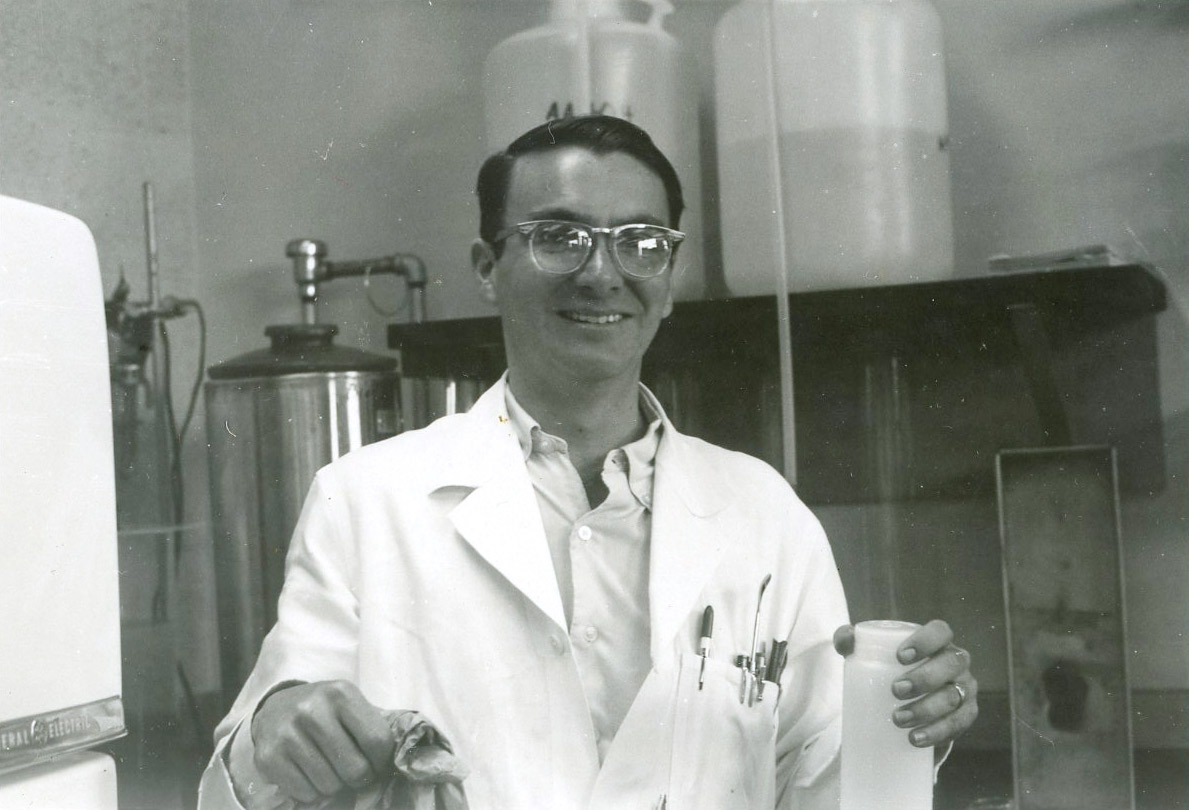 |
| July 1961 - In
the lab in Seattle. |
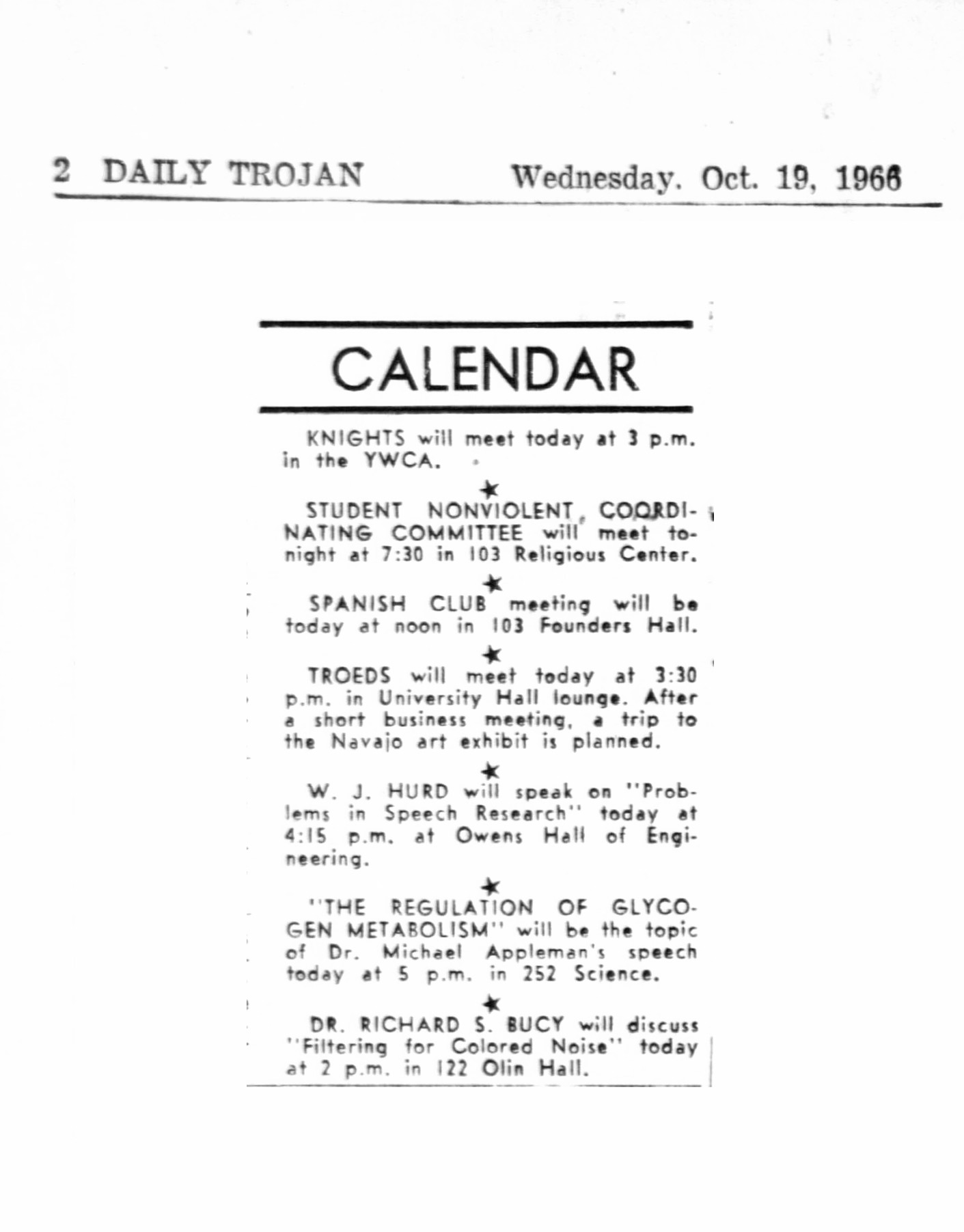 |
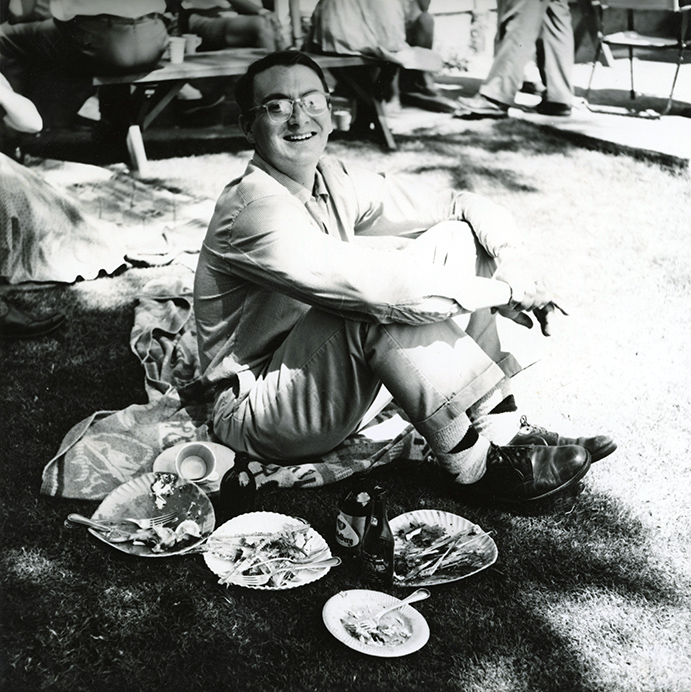 |
| undated photo |
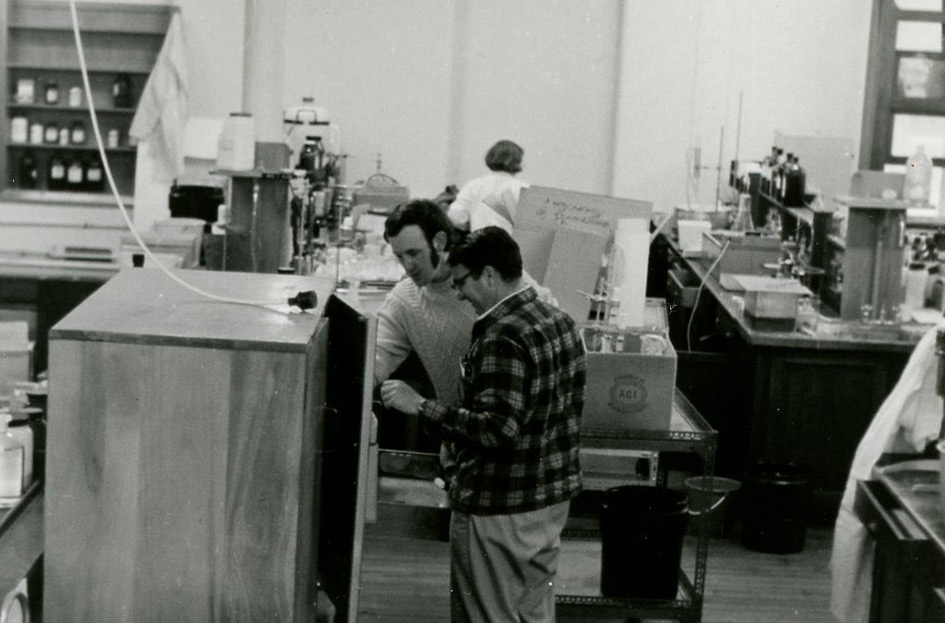 |
| 1973 - In the lab in Dunedin. |
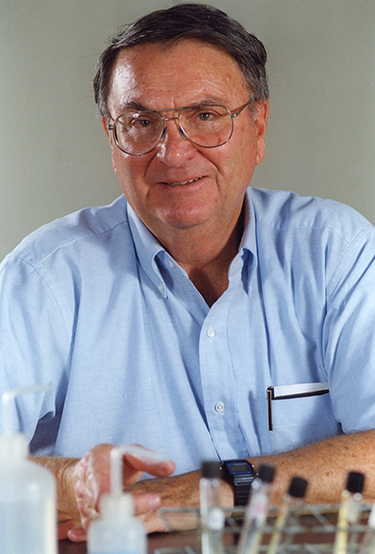 |
|
undated photo |
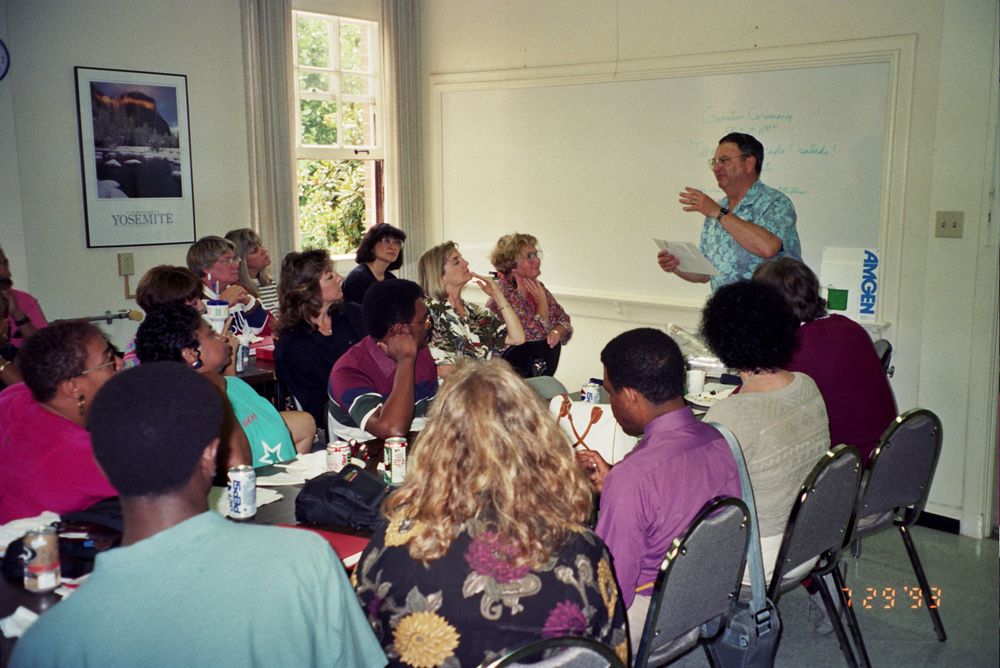 |
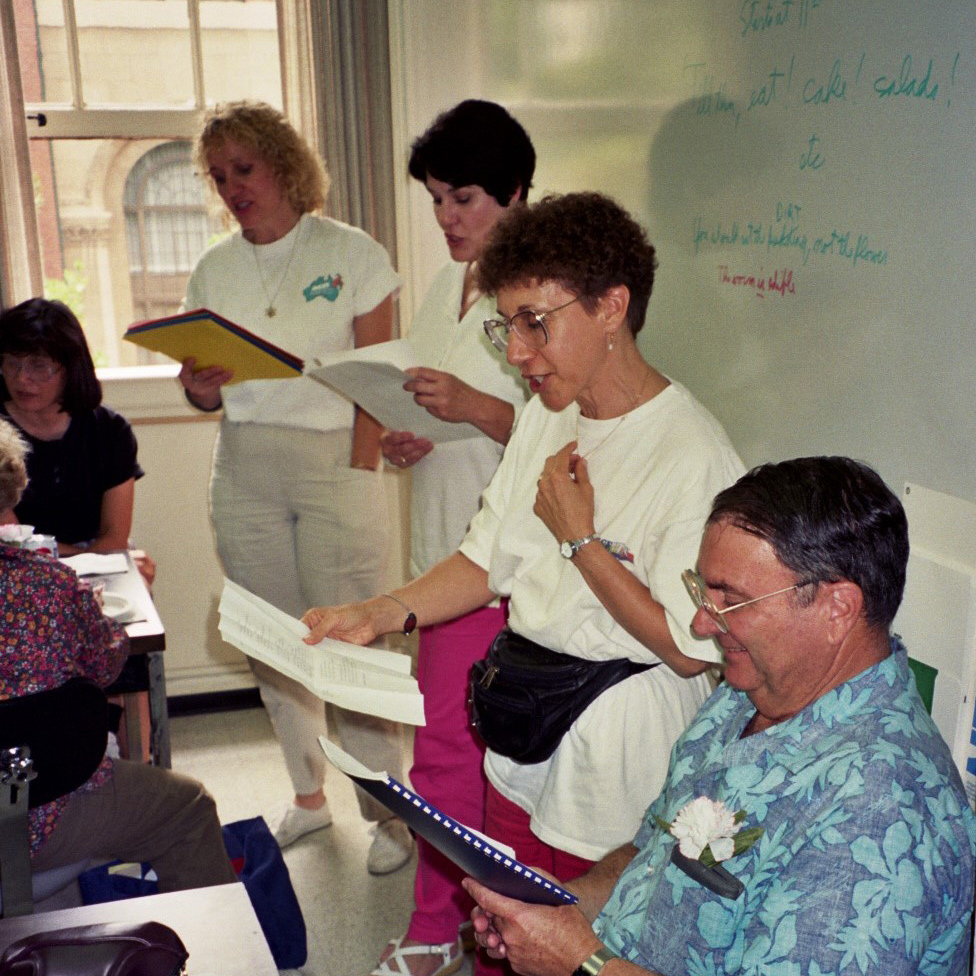 |
| July 1993 - Modern Biology for
Elementary School Teachers. |
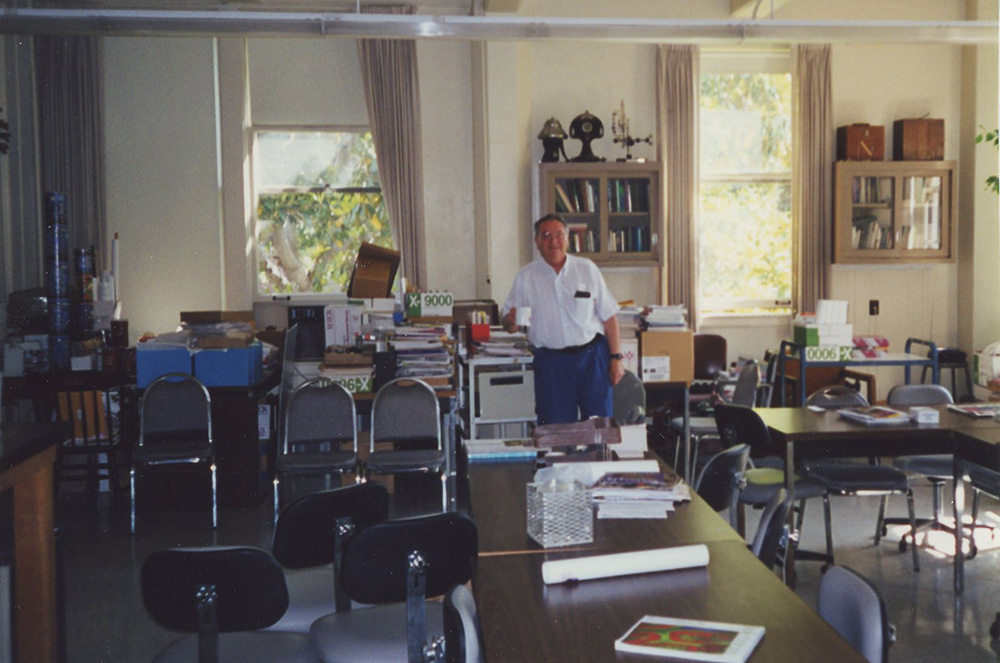 |
| June 5, 2000 -
The annex to Michael's office. |
|
MDA 101 HEALTH PROFESSIONS:
Prospects and Preparation |
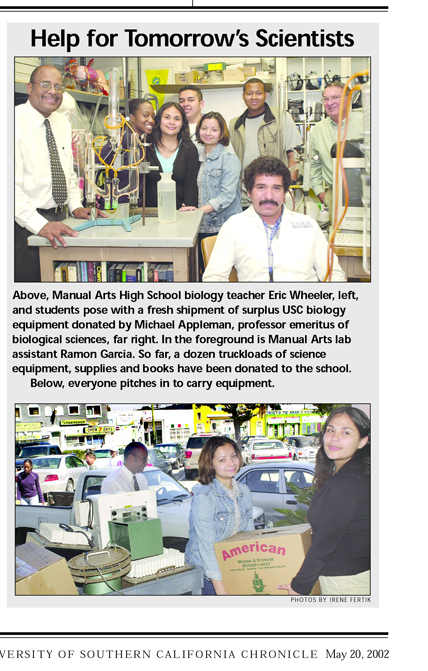 |
| more
|




